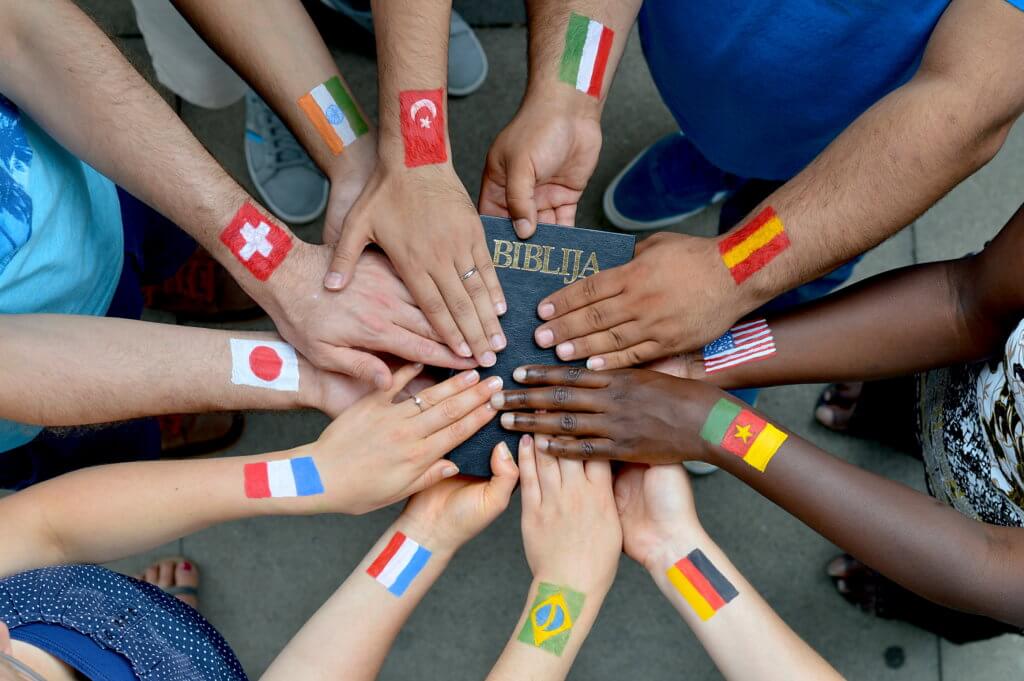“And he made from one man every nation of mankind to live on all the face of the earth.” (Acts 17:26)
By now, social media and news outlets are talking about the killing of Ahmaud Arbery. The facts, in their simplest form, are these: a 25-year-old African American male went for a jog through a Georgia neighborhood on February 23. Perceived as a threat by three white residents, he was pursued and overtaken. One of Aubrey’s pursuers recorded the confrontation, while the other two armed men engaged in a struggle that ended with Arbery shot multiple times and killed. The assailants claimed Aubrey had been breaking into homes before the incident, but the leaked video shows otherwise, and the police had no records of break-ins in that area. The delay in criminal charges or arrests has increased the fury over this incident, and while new facts may emerge and add other considerations as a trial begins, the facts, as we know them now, are horrendous and disturbing. One black commentator wrote that “exercising while black should not be a death sentence.” Comments like this show a deep fear in minority communities that each incident like this only serves to intensify. Deep racial divisions still exists in America, along with a lot of fear and not a lot of unified ideas on how to make it better, other than starting with the justice that must be brought to this current, localized incident in Georgia.
The Archbishop of the Anglican Church in North America tweeted about this incident, “Ahmaud Arbery, may your soul, with all the faithful departed, through the mercy of God, rest in peace. Amen. My heart breaks for his family, & I am more than outraged that this has happened again. When will this STOP? Will we see justice?” Abp Foley Beach echoes many other voices in the Church who have expressed a will to advocate for the racially marginalized in whatever segment of America they find themselves in. Many pastors voiced anger, frustration, and a desire to contribute to the solution to racism and the continued confrontation and killing of individuals based on race.
There are many solutions that can be engaged, but one solution must be looked toward and prayed for more than any other: the Gospel of Jesus Christ. The American Anglican Council recently hosted a conversation with Archbishop Beach, during which he explained his desire to see the Gospel affect the hearts and minds of those who need deep transformation. He talked about how, during this pandemic, people have been seeking Christ in the midst of uncertainty more than ever, and it has been a chance to examine our own hearts for real change.
It is at the heart level that these incidents of racism, hatred, and violence begin, and it is there that the solution to these incidents must also begin. Yes, justice in the temporal sense must be served for the good of the families affected, our society, and our nation. But temporal justice of individual incidents will not necessarily lead to an eternal solution to the problems dividing our nation.
The Gospel has the power to change hearts that, through lies, deception, and sin, are full of anger at those who look or live differently. The cross of Jesus Christ levels the playing field between those of different classes and ethnicities, showing us that we are all sinners in need of a savior, but also that what Christ provided through his death he provided for all. We all equally have access to the forgiveness, blessing, redemption, and glory given for each human being. Just as every nation of the world came from one man, Adam, so now a new glorified humanity composed of every nation is born through one man, Jesus Christ.
This Gospel reality is reflected not only in our individual conversions but in our communal existence as the Church. As she is built up, and people from every tribe, tongue, and nation come together under one banner, Christ, the opportunity for understanding, correction, unity, and love among its members grows greater. Our own ministry supporting movements within towards a unified Global Anglicanism is a reflection of that desire. For example, the Cairo Covenant is a step towards unifying Christians from every tribe, tongue, and nation around common belief and common practice. It provides a way to foster conversation, understanding, and unity as we move together towards maturity. This movement towards unity is happening in multiple denominations, not just in Anglicanism, as the Church around the world becomes the incarnation of the Gospel given for all.
Do temporal justice and temporal solutions bring comfort? They certainly do, especially as those solutions reflect the justice of God. But we can’t stop there. They serve to curb human sin and promote societal peace, but they must ultimately point to the greater solution, which does not simply manage human sin, but puts it to death. We must seek the latter without neglecting the former.
“After this I looked, and there before me was a great multitude that no one could count, from every nation, tribe, people and language, standing before the throne and before the Lamb. They were wearing white robes and were holding palm branches in their hands…” (Revelation 7:9)


